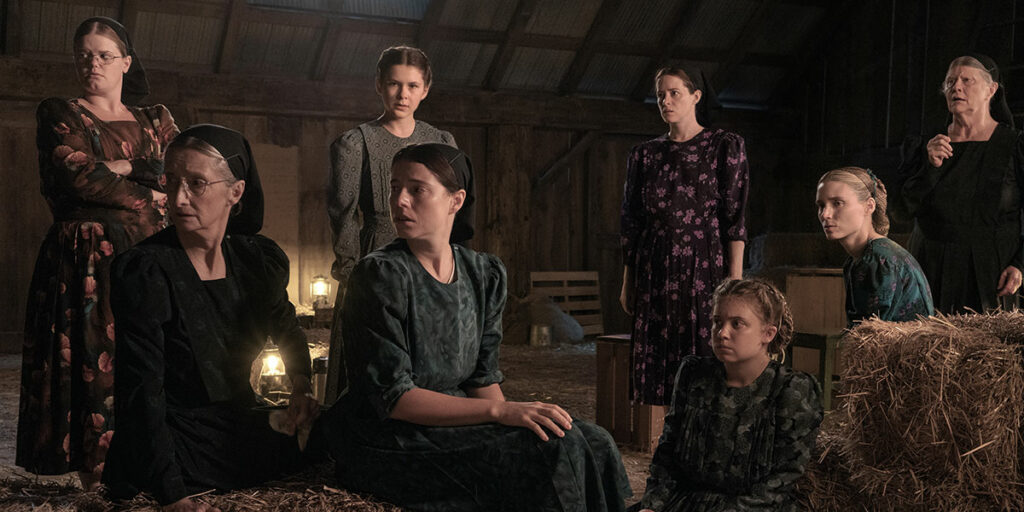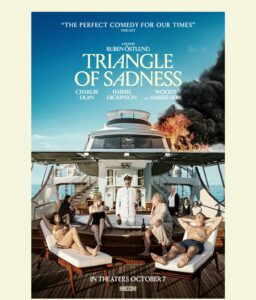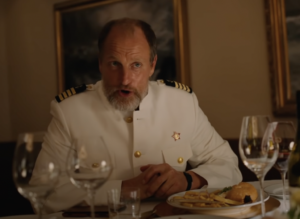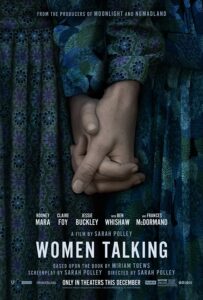Spent a couple hours in line-ups on Thursday to collect tickets and waiting for access to press and industry screenings, but it was all worth it to see two interesting features and get my first taste of #TIFF22 from the inside. I’m sharing photos and videos on the flaw_in_the_iris Instagram account, so if you’re interested please follow me there. This space, as usual, I’m devoting to reviews, though for regular readers who are wondering, I’ll be saving my pyramid ratings for when these films open in cinemas or drop on streaming services.
Triangle of Sadness | Written and Directed by Ruben Östlund | 147 min
Östlund’s The Square was a favourite of mine the year it came out, and like that film his new one won the big award, the Palme d’Or at the Cannes Film Festival. I don’t think it’s quite as good, but it does work as another uproarious class comedy, this time setting a lacerating eye at the One Percent. It starts like it’s going to take its shots at the fashion world, which Robert Altman’s Pret A Porter proved isn’t always easy to do well, but as we follow the bickering couple at its centre (the recently and sadly passed away, Charlbi Dean and Denis Shapovalov-alike Harris Dickinson) onto a yacht cruise for the super-rich, the film really sets sail. The upper deck/lower deck divide is where the tension lies, between the clueless toffs and the hard working crew.
A supporting appearance from Woody Harrelson as the perpetually soused captain is fun, but things get really interesting in the final act. The mid-movie farce might be the most satisfying as a metaphor for late capitalism, but this is a movie with even more on its mind.
Women Talking | Directed by Sarah Polley | Written by Polley, adapting the Miriam Toews novel | 104 min
Polley’s first feature in a decade continues her interest in adapting Canlit classics from women authors, as she’s done with Alice Munro in Away From Her and Margaret Atwood on the series, Alias Grace. Women Talking is unread by me, so I can’t speak to fidelity to source, but what Polley’s done is tell a moving and politically potent story about a group of women and girls from a Mennonite community who meet in secret to decide what to do regarding the men, having learned they’d been repeatedly raped by a group of them while drugged by bovine anesthetic. They discuss the options open to them: do nothing and live with the pain of it, fight for their rights within the community, or leave. What works especially well is when Polley lets her actors — a stellar cast including Rooney Mara, Jessie Buckley, Claire Foy, Shiela McCarthy, and Ben Whishaw — talk. Their core discussion never fails to engage, with unexpected humour in amongst the trauma, but while that’s going on the film is awkwardly paced, with scenes oddly rushed or interrupted by flashbacks and a score that feels intrusive rather than ingrained. While I recognize this is a powerful, important, and even hopeful film, I did wish it focused more on its strengths — primarily the terrific performances by the whole ensemble — rather than the oddly jarring asides, like the tonally inexplicable use of “Daydream Believer” by the Monkees.









